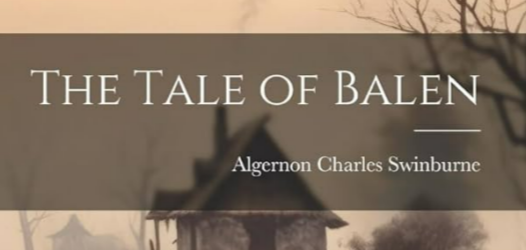Chapter VII-The tale of Balen
byChapter VII – The tale of Balen opens amid the biting winds of a cold, unforgiving season, where the snow veils the earth in stillness and knightly hearts burn bright against the chill. The story begins not with triumph, but with Balen’s quiet resilience—a warrior cast adrift by sorrow, yet bound to a path that only honor could illuminate. Though burdened by the weight of past misdeeds and a kingdom’s disapproval, he presses on, driven by a need to reclaim what was lost and perhaps mend what was broken in himself and others.
Balen moves through forests cloaked in shadow and mystery, where each encounter seems fated, as though guided by unseen forces. Along the way, whispers of his former glory follow him, carried by travellers and the murmuring trees that line forgotten paths. Still, even in solitude, his resolve does not waver; every step forward is both a defiance and an act of penance, shaped by a knight’s unshakable sense of duty.
It is during this quiet pilgrimage that Balen comes across a solitary knight dressed in mourning hues, standing motionless beneath ancient boughs. This stranger, Garnysshe of the Mount, wears grief like armor, his posture noble but weighted by sorrow that time could not ease. What begins as a chance meeting soon binds the two in shared purpose, and with few words exchanged, Balen understands that this knight’s story must be heard and, if possible, healed.
Their journey takes them to a remote stronghold, where Garnysshe seeks his beloved, only to find her affection promised to another. The confrontation is swift, filled with a fury no sword can temper, and in the aftermath, the echoes of heartbreak leave neither peace nor victory. Balen, compelled to uphold the values of honor, seeks to quell the storm—but sometimes righteousness, when too swift, only deepens the wound.
As they part ways, Balen continues alone and soon arrives at a crossroads where ancient warnings are carved into stone. There, an old woman speaks of a doom yet to come, but her riddles offer no clear path, only further confusion. Though troubled, Balen does not turn back; like many before him, he chooses action over fear, his loyalty to the code of chivalry unwavering, even as its cost becomes unclear.
His next stop is a castle of haunting beauty, its walls covered in ivy and sorrow, where a noblewoman offers him rest—and a test. She speaks in riddles of loyalty and betrayal, leaving Balen to question not only his mission but the truth behind every kindness offered to him. Dreams disturb his rest, filled with images of bloodied swords and unseen enemies, as if fate itself conspires to unsettle his spirit.
It is not long before he faces the cruelest twist of all. In a desperate fight against an armored stranger, Balen delivers a mortal blow, only to discover that he has slain his own brother, Balan. The recognition comes too late—the helmets already removed, the truth exposed beneath the weight of silence and misjudgment—and grief strikes like lightning across both their hearts.
The tale does not end with vengeance or triumph, but with sorrowful reckoning. The two brothers, bound by love and undone by circumstance, share their final breaths in mutual apology and pain. Their deaths serve as a mournful testament to how even noble hearts can fall prey to fate’s unrelenting cruelty.
This legend offers more than just the thrill of combat or the nobility of chivalry—it presents a deeper truth. Actions, even when done with noble intent, can lead to devastation when guided by incomplete knowledge or mistrust. In Balen’s story, we witness how honor without understanding can become a sword with no target but the self.
Historically, “The Tale of Balen” echoes medieval beliefs surrounding destiny, where knights were seen as instruments of a divine plan. The story draws from the same well as other Arthurian legends, blending myth with moral struggle in a way that captivates readers centuries later. While fictional, these tales often reflect societal values of the time—loyalty, justice, and the cost of pride—creating not just a fantasy, but a mirror to human nature.
The legacy of Balen survives because it warns and inspires all at once. His journey reveals that the pursuit of righteousness often involves impossible choices, and that sometimes, even the most virtuous path is paved with unintended sorrow. In the end, the tale becomes a meditation on what it means to be honorable, and whether true redemption is ever truly within reach when our fates are already sealed.

